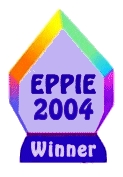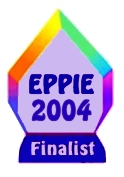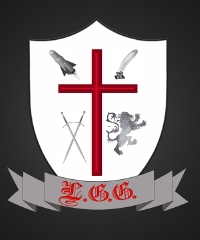|
Christian speculative fiction (Christian SF, ChristianSF, or CSF) or, as some prefer to call it, Christian futuristic fiction (CFF), and Christian fantasy (CF) combine one or more aspects of speculative or fantasy fiction with Biblical themes to examine Christian doctrine, ethics, and relationships (with God and other people) in a fresh context. Christian SF can be useful in removing the myopia attendant on the context we do live in, so as to allow the issues to speak for themselves.
A substantial amount of what is sold as Christian speculative fiction (Christian SF) is apocalyptic (chiliastic) "end-times" literature, not dealing with science or technology, and this is one reason some people use the term "futuristic" rather than "Christian SF". Fiction that is futuristic in this sense is properly fantasy (or, more accurately, future history or apocalyptic fantasy) rather than science fiction. This and other types of Christian fantasy fiction are often written for younger audiences or as romance. Science fiction, on the other hand, has science and technology as principal characters, part of the essense of the story.
The Christian content of speculative or fantasy fiction may be explicit as in Rick Sutcliffe's Christian SF, or allegorical as in that of C.S. Lewis' Narnia series (Christian fantasy). It may be thematic (i.e. dealing with good and evil, but not in an explicitly Christian setting.) If Christian themes are quite muted (perhaps the characters have a church connection, faith in God is mentioned, but not expanded upon), or the story is merely clean, i.e. "suitable for Christian audiences" the material may be termed "Inspirational", and sold in Christian bookstores, though there isn't necessarily anything Christian about it. The term "Inspirational Fantasy" may also be used by those writing with Christian themes, but preferring a muted genre name. In the broader science fiction and fantasy market, very little literature makes direct reference to Christianity. Specifically, most science fiction takes its cue from the majoritarian culture and its mass media by either ignoring religion or being specifically hostile to Christianity, stereotyping or even demonizing believers as villians--something authors could never get away with if the issue were race, gender, or nationality. There is little or no explicitly Christian SF available in secular bookstores.
Note: Some Christians object to the very idea of fantasy, speculative literature in general, or even to fiction in its entirety, for some or all of the following reasons:
- elements of magic call on powers other than God
- elves, dragons, and such creatures are the tools of Satan alone
- intelligence is ascribed to creatures other than humankind
- the anti-Christian worldview that suffuses much speculative literature
- they are hostile to science and hence to science fiction
- all fiction is an extended lie, and lies are all from Satan
They therefore regard "christian SF" as an oxymoron.
The author of this site understands these objections and agrees with them to some extent, but offers the following observations:
- It is indeed inapropriate to seek for "magical" powers rather than to rely on God. Rick Sutcliffe's Christian SF does not do so.
- Elves and other such creatures may be imaginary, but the imagination is not in itself evil. If other worlds than earth or intelligent creatures do exist (and whether they do or not is irrelevant to Christianity), God has his own plans for them.
- Intelligence is a Divine characteristic God has chosen to instantiate in the physical world. He has provided it in degrees, and if to other creatures than humankind, that is His business. While the Bible does not say there are intelligent beings elsewhere, it does not explicitly say there are not.
- Writing is a tool, just as computers are. It can be used to advance a Christian worldview just as it can the other. Besides, the anti-Christian stereotypes are old and tired. It's time for something new.
- Let the hostility be theirs against Christians, not Christians' against them.
- Say rather that Christian science fiction and Christian fantasy are extended parables.
Christian Alternate History
Christian speculative literature may or may not be set in the future or an alternate world. Sometimes both are termed Christian Futuristic Fiction, though the latter is more properly Christian Alternate History, and is somewhat rare, for AH (Alternate History) fiction properly depends on taking some decision from our own history and supposing that it was made differently. That is, the fictional world has roots in ours; it does not simply stand on its own. Rick Sutcliffe's Christian SF fits this latter category, as his alternate worlds, unlike, say, those of C.S. Lewis, are not merely connected in a way that allows occasional travel from one to the other, but are all derived from the originally created earth. At key points in history a decision or group of decisions results in God allowing a nexus in which one earth becomes two, each having the same prior history, but diverging afterward. If alternate history SF is not carefully crafted, this form of Christian SF can easily become fantasy instead.
Christian Science Fiction
Christian Speculative Fiction may have science and technology as an integral part of the plot. When it does, the "SF" in "Christian SF" could be said to stand for "Science Fiction. When this is the case, in all likelihood the SF is soft. That is, while science and technology are necessarily integral to the plot of a Christian science fiction novel, technological speculation and explanation are not the most dominant theme as they might be in "hard" SF. Rick Sutcliffe's Christian science fiction also fits into this latter category, as his novels have ethical choices as their predominant theme rather than the science and technology that drives those choices. That is, the science and technology in Rick Sutcliffe's Christian SF are critical supporting cast, but not the central characters.
Christian Visionary Fiction
This is a new (and not yet common) term employed to describe fiction like that of Rick Sutcliffe, which deals at least in part with ethical and life issues from a Christian point of view but in a futuristic, fantasy or science fiction context. Sometimes issues can be better highlighted by examining them in an unfamiliar setting, or via allegory. Note that the term "Visionary Fiction" by itself appears to be used by most its proponents primarily in a New Age context, and therefore contains elements that are antithetical to Christianity. It may be unlikely, therefore, that "Christian Visionary Fiction" will catch on as a descriptor of this sub-genre of Christian SF.
Rick Sutcliffe's CSF
Rick Sutcliffe's Christian SF is alternate history and soft science fiction, but neither fantasy or chiliastic. It is set among several alternate worlds linked by a medium called the timestream, and involves the characters in ethical decision making. The only sense in which it is "futuristic" is that some of the alternate worlds have had information technology and biotechnology hundreds of years longer than ours. However, they have deliberately chosen to limit the deployment of these technologies, so such futuristic elements are blunted, and this is especially so since our own contemporary history frequently intrudes into the stories.
The key nexus or decision points that generate two alternate worlds going forward to the future from that point, where only one existed before, are Biblical events, such as the crucifixion, which is known about on all the worlds, but took place on only one. A nexus may hinge on a single decision and complete in a moment, or on several and take years to result in the final separation of the two worlds. The "great" or "long" nexus began when Pilate did/did not wash his hands, but only completed a thousand years later when Brian Boru did not/did survive the battle of Clontarf. The Interregnum series of novels plays out against the backdrop of a nexus in the fall of 2001. For more information on these alternate worlds, see the page on the timestream.
Characters of Rick Sutcliffe's Christian science fiction wrestle with sin, salvation, the problems of pain, evil, and war. Some are Christians, some are hardened sinners, others are ambiguous, at various levels of interest or maturity, or still on a spiritual journey. They learn and grow--some toward God, some away. Each book has at least one explicit Gospel presentation. However, the Christian content is not in the readers' face. It's just there, and this in itself sets this fiction apart from most science fiction and fantasy, and indeed most modern literature (including much of what is sold in Christian bookstores) because modern authors and editors sanitize fiction of all Christian content so depicting an unrealistic world. That is, mainstream modern fiction could be rightly be accused of being just as speculative, fantastic, or futuristic in its own way as the fiction presented here.
At the same time, science and technology are an integral part of the scene and plot. Decisions and their consequences revolve around issues related to information science, biotechnology, management science, appropriate technology, medical techniques, and what the future may hold. On Ortho Earth, past experiences with the horrors of technological warfare have led to a ban on certain technologies, such as projectile, nuclear, and biological weapons. A brief summary of some of the issues mentioned in Rick Sutcliffe's books--both the ethics text and the speculative fiction--can be found here.
The first series, The Interregnum, takes place largely on Ortho Earth, also called Greater Hibernia, and covers the period 1941-2001, during which there was a ban on the throne and the High King's family, and a corrupt oligarchy of nobles ruled.
Volume I, The Peace, published as an electronic book, won an award nomination, was a best seller with its first publisher and received very positive reviews, particularly from Analog magazine's Tom Easton. It was republished by Writers Exchange ePublishing in December 2002.
Volume II, The Friends, is also available in electronic book form and in paper from Booksurge. It was published by Writers Exchange ePublishing in June 2003 and was named the best Science Fiction novel of the year with an EPPIE 2004 award.
Volume III, The Exile was published by Writers Exchange ePublishing in July 2003, and was an EPPIE 2004 finalist for Science Fiction. It is available in both electronic book and paper form.
Volume IV, The General, was published by Writers Exchange ePublishing in March 2006 and is available from them and their retailers in a variety of formats.
Volume V, The Nexus, was published by Writers Exchange ePublishing in April 2006 and is available from them and their retailers in a variety of formats.
Volume VI, The Builder, was published by Writers Exchange ePublishing in March 2012.
The second series, The Throne, takes place almost entirely on Ortho Earth, also called Greater Hibernia, and covers the period 1000-2001 and the kings and queens of Hibernia during that time.
Book 1, Culmanic Parts, contains a memoir of Catherine the great, first High Queen from 1014, the story of the thirteenth century culmanics who began Hibernia's scientific and technological revolution, and the first part of Amy Rea's fourteenth century story.
Book 2, Rea's Blood or Navy Girl or follows Amy Rea through to the battle of Trafalgar in 1440. Expected in November 2015
Book 3, Tara's Mother concludes the story of the war with Spain in 1441 and the peace that follows. Expected in January 2016
Book 4, The Paladin tells the story of Hibernia's throne from 1492 through 2001, concluding both series. Finished; Awaiting second poof reading.
All of Rick Sutcliffe's books can be purchased via links here and of course from the Publisher and other fine retailers in many formats..

|

|
|
The Friends
|
The Exile
|
|




